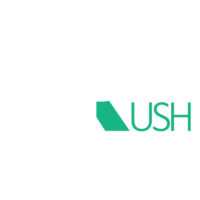Content
The only Multi-Party-Computation (MPC) security platform for digital assets is FIPS 140 L2 certified. A FIPS 140 L2 https://www.xcritical.com/ certified software solution that eliminates public-key cryptography’s single point of failure by providing a safe, distributed method of signing transactions while managing all of your digital assets. Additionally, these solutions can help to streamline and centralize cryptocurrency-related transactions and operations. Businesses use them to make asset management and storage more accessible while also maintaining asset security and privacy. In this top tools list, we have got the list of top 30 cryptocurrency custody tools.
Newsletter – 2025 Best Blockchain Networks
As of May 2020, Kingdom Trust had $13 billion of investor assets in custody. Taking an equal approach to institutional investors and individual clients, Kingdom Trust belongs to the most secure and qualified cryptocurrency custodians. By assisting its clients with reducing risks, the platform helps cryptocurrency custody software with compliance, transparency, and accountability, particularly in the case of institutions. The mass adoption of crypto assets and rapid industry growth created the need for efficient ways to store cryptocurrency securely.
How to find the best crypto custodian?

Singapore’s approach is particularly notable for its balance between robust oversight and technological adaptability, making it a model Proof of work for emerging markets seeking to develop their own regulatory frameworks. Catering equally to institutional investors, exchanges, and individuals, Kingdom Trust is among the most highly secure and qualified cryptocurrency custody solutions. By helping its clientele with risk minimization, the platform helps with transparency, compliance, and accountability, especially in the case of institutions.
- Poolin Wallet was founded in December 2017 and has offices all around the world.
- As you probably know, cryptocurrencies don’t have any physical form, unlike government-issued paper bills and coins that you keep inside your wallet or purse.
- They charge a 0.4% annual fee plus $125 for withdrawals, providing independently verifiable blockchain addresses for asset segregation and $75 million in cold storage insurance coverage.
- Borrow BTC, ETH, or BCH to sell, and be bearish on the price of BTC, ETH, BCH, and LTC.
- Cobo Custody is a compliant, military-grade institutional crypto custody that balances security and efficiency.
- Copper ClearLoop allows you to easily manage the transfer and reporting of digital assets between trading accounts and secure offline storage from a single location.
Vanar Blockchain Explained: A Guide to Unlocking Web3 for Brands
PricewaterhouseCoopers, Grant Thornton, and Zühlke audited the company, and Compass Security performed penetration testing. The Ledger Vault platform is the most secure and adaptable solution to store and manage private keys for custodians, exchanges, crypto banks, and professional investors. De-risk your business by leveraging the Vault and Ledger managed operations’ end-to-end security. Before the rise of cryptocurrencies, digital assets typically referred to digital items such as pictures, videos, PDFs, and other files companies owned. The software developed to help manage these digital asset libraries became known as digital asset management software.

A self-custody wallet is a type of cryptocurrency wallet that gives users complete control over their private keys. When you have control over your private keys, you have control over your digital assets. This evolution is enabling institutions to access a broader range of investment opportunities while maintaining the security and compliance standards they require. Fidelity Digital Assets operates under a New York Trust Charter granted by the NYDFS, focusing exclusively on Bitcoin and Ethereum custody. Their service structure includes a 0.35% annual custody fee and 0.1% trading fee, leveraging their traditional financial services expertise for digital asset management. Licensed to provide qualified custodian services in New York, Gemini is the first crypto custodian having SOC-I and SOC-II compliance.
A custodian is an institution responsible for safeguarding assets on behalf of institutional investors in order to diminish the risk of loss. However, the increasingly digital modern world, where most securities are kept in electronic form, is marked by the development of crypto custody solutions. In the United States, oversight comes from multiple regulatory bodies including the SEC and CFTC, with requirements spanning the federal and state levels.
Therefore, alongside the growth in the value invested in the blockchain-cryptocurrency sector, the demand and need for reliable custody service providers is on the rise. To ensure optimal security, the best crypto custodians often leverage a combination of hot and cold wallets. By definition, hot wallets are online wallets and are thus prone to hacks (hot storage).
While Crypto Custody is the solution to keep institution funds safe and sound, the crypto wallets are apps for institution customers to access the funds. Openware offers services in crypto market making and liquidity to kickstart new cryptocurrencies and exchanges. Hot wallets (or self-custody wallets connected to the internet) are at the highest risk of being hacked.
The European Union’s Markets in Crypto-Assets (MiCA) regulation represents a significant step toward regulatory harmonization across the EU member states. This framework aims to create standardized requirements for cryptocurrency custody providers operating within the EU. The significance of MiCA extends beyond Europe, as it represents the first comprehensive attempt to create a unified regulatory framework across multiple countries.
It is the key to unlocking new use cases in tokenization, digital asset management, stablecoin issuance, and more. While some crypto custodians create their own infrastructure, others utilize infrastructure from external providers. As an investor, you might want to understand the technological setup and whether you are comfortable with it. Gemini Custody holds licenses as both a qualified custodian and fiduciary under New York Banking Law.
These frameworks have become reference points for other jurisdictions developing their own custody regulations, particularly in areas such as capital requirements, security standards, and operational protocols. The ultimate goal of using crypto custody services is to protect cryptocurrency assets against theft and loss. Hex Trust operates across multiple jurisdictions with licenses including a Hong Kong Trust or Company Service Provider (TCSP) license, Dubai Virtual Asset Service Provider (VASP) license, and Italian OAM registration. They charge 0.1% monthly with a $100 minimum, supporting over 100 digital assets including NFTs and security tokens. These requirements ensure that regulated custodians maintain institutional-grade security while providing the operational reliability expected in traditional finance. Open-source Cryptocurrency & Digital Assets Exchange platform facilitates the trading of stocks, digital assets, and cryptocurrencies.
Since they are digital currencies, they exist and operate through IT technology and stored in digital form, called cryptocurrency wallets. The fiduciary obligations that come with custody of private keys belong to the certified custodian. The term “crypto custody” refers to the procedure of safeguarding assets against theft.
It uses the highest cryptographic, IT, and physical security requirements, as well as multi-party segregation and multi-signing capabilities. For years, crypto investors have been without essential financial products in the blockchain environment. BlockFi fills this void by providing clients worldwide with access to high-interest crypto accounts and low-cost credit products. BlockFi is situated in New York and has a BitLicense from the state of New York. Coinbase is a digital currency wallet and platform that allows merchants and users to exchange bitcoin, Ethereum, and litecoin. Coinbase Custody is a self-contained, self-capitalized subsidiary of Coinbase, Inc.
